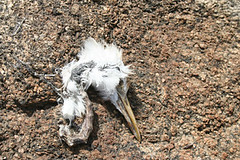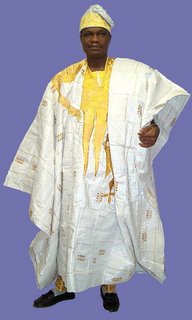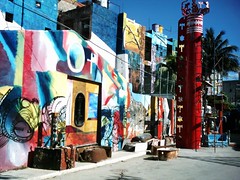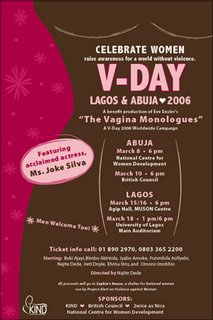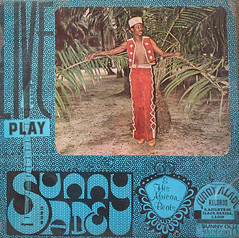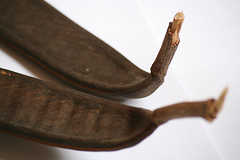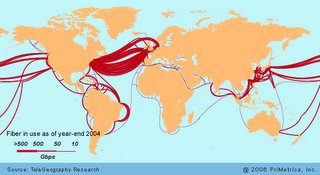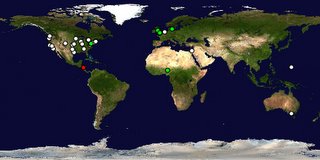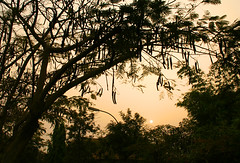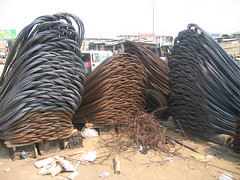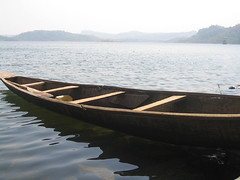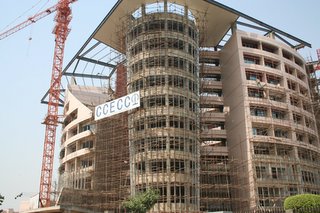“Vagina Monologue will address the wrong treatment of women…” Interview with Hafsat Abiola-Costello by Funke Olaode published in ThisDay feb 19 2006
What is the V-Monologues all about?
V-Day is a global movement to stop violence against women and girls and it is a vehicle that increases awareness of the fight to stop violence against women and girls, including rape, battery, incest, female genital mutilation and sexual slavery. So, V-Monologues is about men and women standing together to say no to violence against women. KIND has been fortunate to secure the right to perform this award winning play in Nigeria. It is the first time it would ever be performed in Nigeria and to ensure the success of the project, we have enlisted charismatic and renowned actresses like Mrs Joke Jacobs and others to work with us and make the project a success. The goal of V-Monologues is to raise awareness about the life that women all around the world are living. It is based on testimonials of about 200 women in all parts of the world and from all religious backgrounds. The play is based on interviews from these women about their memories and experiences of sexuality, and gives voice to women’s deepest fantasies and fears. It shares their experiences of violence in the form of female genital mutilation, domestic violence and things that happen in many of our cultures that are often not spoken about. I felt it was right and an appropriate time to do it. We still live in a strict, unforgiving society. So the goal is to bring these issues to the awareness of the public so that society can say this is not who we are as a people and we need to stop it. The Monologues will be shown in Abuja and Lagos in March.
FO:Considering the Nigerian mentality, how have you been able to break the sensitivity of people regarding the Monologues?
I think what we can say about the Nigerian mentality is reserved about things that are sexual. I was extremely close to my mum while I was growing up. You know my mum had nine children (with seven surviving) but I can remember one time that my mum talked to me about sex. Any issue that has to do with the vagina is not something we talk about openly in our culture. And because we don’t talk about it many abuses are able to occur in our society because young girls don’t know they are being violated. For instance, if they are too young, they don’t understand when they are raped. And even don’t understand when their uncles or any member of their family is touching them n the wrong way. We need to address this through the play.
FO: How you came about the V-Monologues
Well, it started in 1996. It is a play written by a renowned American playwright, Eve Ensler. They started performing it in the United States and right away, it had global appeal. Like I said earlier, it is based on testimonials of about 200 women from all parts of the world, including Africa. And very quickly, the play got translated into 35 different languages. It has been shown in 80 countries including South Africa, Kenya and some countries in the Middle East and North Africa. Another benefit of this play is that it is used to raise money to end violence against women. The money realised is used to provide shelter for battered women. We decided to bring it to Nigerian so that Nigerians also enjoy its benefits, to raise awareness in our society and to raise money. Because it is a stage play, we are going to sell tickets. Our goal is to be able to reach an audience of about 5000 people and that is going to be about 5000 tickets. Not only that, there is going to be varying costs to it. The proceeds from these events are going to be used to support anti-violence groups as well as provide shelter for battered women. Sometimes there are women who are facing violence in the family, women whose husbands beat to the extent that it is detrimental to their health. This shelter provides them protection until they can resolve whatever problems they have with their husbands.
In the African culture, some men believe that wife battery is another way to make their wives submissive. Do think the play can correct that?
There are many ways that women can be submissive to their husband but not by getting beaten. There is a publication that talks about violence against women. It shows how many women have been killed by their husbands and in some cases by their children. While there is a general belief that many of our cultures condone wife-beating, I doubt if there is any culture that condones the killing of a wife. Even from my religious understanding, a woman’s life is from God and you don’t have the right to take her life. But many men, all in the name of correcting their wives, end up causing them harm. There is nothing wrong for men to correct their wives but not through physical violence. This is wrong because women have a right to their own bodily integrity and any kind of violence to that bodily integrity is a violation of women’s right.
What is the link between KIND and V-Monologues?
KIND is an organisation which works to promote women and democracy in Africa. Our focus is really on young women because we found that young women and women generally in the Nigerian society go underground when they face any kind of violence. And when they face any kind of violence they become frightened. Because we want to empower women, we have to address some of the obstacles facing in the society. The major obstacle is violence and KIND has set out to address it. You know many NGOs hold rallies, lectures and so on which KIND does regularly. But we continue to look for instruments/vehicles that we can still use to pass the massage across more effectively. That is why we are bringing V-Monologues here. It is part of our culture in Nigeria to gather and listen to stories (tales by moonlight) in our villages. It is also part of our culture to gather and watch plays. It is interesting and beautiful when Africans are watching play. As the play is being performed, you can gauge their response with everyone singing, talking shouting at the same time. I realise that people get involved in plays and I felt that instead of organising a lecture where as many as half of the audience would fall asleep, it would be better to do something that is dynamic, engaging, interesting, and exciting. That is why we are bringing the play V-Monologues.
How did it strike you as a person, being a devout Moslem?
I thought it was wonderful topic being a devout Moslem. I am a student of Islam and in Islam, we are instructed to search for knowledge. Islam doesn’t say that you should block yourself from information. As a Moslem you should have access to information. And when you look at Islam, it means peace. Amnesty International just did a study of Lagos that was released. The report said two thirds of women in certain communities in Lagos experience violence within their family. Violence is the complete opposite of peace. So this kind of violence is against Islam. I believe as a Moslem, religious and spiritual person, we have to do something to ensure that our brothers and sisters are living in peace.
KIND was established after you mum’s death 10 years ago. Are the aims and objectives of setting up the organisation being achieved?
Well, 10 years is a good time to reflect and say how much KIND has done. I feel happy to say that KIND has achieved a lot in the last 10 years. We did a lot to immortalise my mother, Kudriat Abiola’s name; From the street-naming that we did in New York to efforts within Nigeria to promote young women’s leadership. This year, our leadership programme for young women is expanding because of the support from the European Union and COIDAID. CODIDAID is a Dutch foundation. The two of them are funding us to reach about 1,300 women over the next two years. We are really excited because it brings KIND programmes to a new level. And with this expansion, KIND as an NGO would be the largest trainer of young women in the country. It is wonderful and if my mum were alive, she would be happy to see us training young people in entrepreneurship, financial management, leadership skills, genital and women’s right.
You have the only visible face running KIND. What of your other siblings?
My mum gave birth to nine children but two died. And remember that the last two boys were 9 and 11 when she was killed in 1996. So they are in the university now. From the very beginning KIND was a decision that I took and my siblings supported it. June 2006 will make the 10th year anniversary of my mother. My two sisters will be coming down from the United States for all laid down programmes. Even in the past, I have always carried my brothers along in all the KIND activities we have had in Nigeria. Sometimes, my brothers would jokingly “Hafsat, is it a women-only event?” They would come with their wives and children. I have never carried KIND alone even though I may be its only visible face. Also KIND is an NGO and it is different from a family venture. It is an NGO established to honour a particular woman. I just happened to be the ED. Even if I am ED or not, I know that Kudriat Abiola’s children would always be 100% supportive of KIND activities because we the mother we had. My siblings would be behind anything that is done to honour her, to empower Nigerian women and ensure that the country remembers her.
Lets get personal. You got married to a British diplomat last year. Why did you prefer to marry a foreigner?
My husband just happens to be person I fell in love with. I never expected it. Nick and I were both shocked. You know I never thought in my mind that I would a European person. I was raised by my father who was very much a pan-Africanist. I never aspired to marry a white person. But there is something special about husband and that is why I married him.
How have you been coming with the difference in your background?
It’s been fascinating and because of socialisation, we women in Nigeria have certain ideas about rights in the family. We might even think that there are certain things that is our husband’s rights. But my husband doesn’t see it that way. In fact, my husband is more empowering about me than I am about myself. I remember when I was growing up, I was asthmatic and because of that, I was restricted doing certain home chores such as cooking, going to the market and so on. But when I got married, I move to Abuja where my husband is based. He said that now that I am his wife, I have to cook and do stuff like that (General laughter). I took money and went to the market with the cook. Initially, I was confused when I got to the market. But I still went around and bought the things needed. Though I was exhausted that first day, I realised that with understanding, one can work out a relationship that suits your husband and family.
How do you meet him and what was the attraction?
I met him Bristol when I went to make a presentation at the European Parliament. He was one of the diplomats from Nigeria. What attracted me to him is his gentleness.
What was the reaction of your family members and his, when you both decided to get married?
My family has been very supportive. They felt that in the absence of both our parents, they wouldn’t want to give Nick and I any wahala. So when I introduced him to the Adeyemis, my mum’s family, they were all very welcoming. And you know my mum’s older brother is a diplomat, so they had some rapport. My husband is the baby of his family and is much loved. And when he took me to his family I was taken as one of their own.
Any advice for the Nigerian women and Youth?
Nigeria is blessed with rich cultures. But I want Nigerian women to realise that our function as women is not only to transmit culture to children but to shape culture as a change agent. There are certain cultures that we need to preserve and there are other aspects of our culture that we need to reflect upon and ask if it is healthy for us as a people to still keep. If it is not healthy, then we need to change it. I feel that Nigeria’s youths need to engaged in the reengineering of the political scene. For instance, one of the things that traumatised me in Nigeria occurred last December 2005, when so many lives were lost including of children in that ill-fated plane crash. I wept because Nigeria could not afford to lose those people. And to see that those problems with Nigeria’s aviation industry are problems of the Nigerian political system. So I want young people to start thinking about how changes can be made.
Read more...
